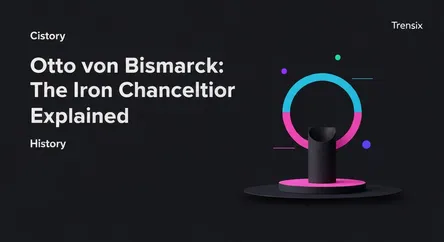History
Otto von Bismarck: The Iron Chancellor Explained

An overview of Otto von Bismarck, the influential Prussian statesman who unified Germany and became its first chancellor, shaping European politics.
What is it?
Otto von Bismarck (1815-1898) was a Prussian nobleman, writer, and statesman who masterminded the unification of Germany in 1871 and served as its first chancellor until 1890. Known as the "Iron Chancellor," he was a master of Realpolitik, a political philosophy prioritizing practical objectives over ideology. Through a series of calculated wars against Denmark, Austria, and France, Bismarck consolidated the numerous German states under the leadership of Prussia. He dominated German and European affairs, skillfully navigating complex diplomatic webs to maintain peace after unification.
Why is it trending?
Bismarck's legacy remains a subject of intense historical study and debate. His methods of "blood and iron" and authoritarian rule are scrutinized, yet his political genius in creating a unified German nation-state from a collection of smaller states is undeniable. His pragmatic and powerful leadership is often referenced in discussions about statecraft and international relations. Furthermore, his creation of the first modern welfare state in Europe, introducing health insurance and pensions to counter the rise of socialism, is a landmark in social policy.
How does it affect people?
Bismarck's unification of Germany fundamentally reshaped the map and power balance of Europe, setting the stage for future political developments. His domestic policies had a direct impact on ordinary people. The Kulturkampf (culture struggle) against the Catholic Church affected religious life and education. More lastingly, his pioneering social welfare programs provided a safety net for German workers and became a model for many other nations, laying the groundwork for the modern welfare state that continues to influence social policy worldwide.